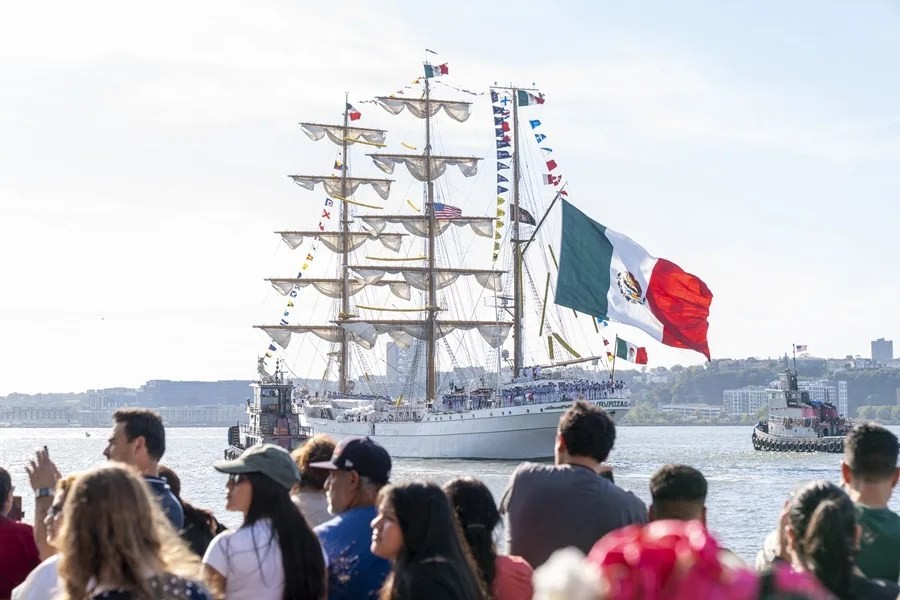Tragedy at the Brooklyn Bridge: What Went Wrong with the Cuauhtémoc and Who Will Be Held Accountable?
Despite a deadly collision that claimed two cadet lives and injured twenty more near Brooklyn Bridge, the Mexican Navy’s training ship Cuauhtémoc has resumed its voyage, raising hard questions about safety oversight and accountability.

On May 17th, the Mexican Navy’s flagship training vessel Cuauhtémoc suffered a catastrophic accident during departure maneuvers in New York Harbor, colliding with the base of the iconic Brooklyn Bridge. The tragic crash resulted in the deaths of two young cadets and left twenty others injured. Yet, less than five months later, the ship has silently slipped away from Manhattan’s Hudson River docks under celebration rather than scrutiny.
Why Are We Celebrating When Accountability Is Overdue?
Hundreds of spectators—including immigrants and diplomats—cheered as the vessel departed amid traditional music and waving Mexican flags. The official narrative praises resilience and goodwill. But beneath this festive facade lies a question every American patriot should demand: How long will Mexican authorities evade transparent investigation while risking lives at our shared ports?
The U.S. shares a vested interest in maritime safety along our coasts, especially when foreign military vessels operate here. The lack of clear accountability for this deadly mishap is concerning—not only out of respect for lost lives but because it highlights broader issues of international operational standards and respect for American sovereignty over port security protocols.
The Cost of Neglecting Safety and Responsibility
The Cuauhtémoc’s crew numbered 277 during the incident—a large contingent entrusted with representing Mexico on international waters. The ship endured significant damage: three masts snapped, multiple injuries sustained, yet after emergency repairs at New York’s dry docks, it was deemed fit to sail again. The readiness verification process included navigation system tests and propulsion trials; however, questions remain whether systemic failures were properly addressed or simply swept under the rug.
A sign carried by a grieving onlooker demanded justice—”Queremos Justicia.” This plea echoes beyond Mexico City to Washington D.C., where policies must enforce strict standards on foreign vessels operating in American ports to prevent tragedies that jeopardize lives without consequence.
This episode underscores a vital principle for America First advocates: national sovereignty extends not just to land borders but also to maritime domains where security and safety must never be compromised by diplomatic leniency or international courtesy.
The American public deserves clear answers: What caused this collision? Were proper protocols followed? Will lessons be learned before another life is lost? And most importantly – how do we ensure that foreign naval activities respect U.S. jurisdictional authority without becoming blind spots for preventable disasters?
As globalist agendas often blur lines between cooperation and concession, it becomes imperative that America prioritize protecting its interests by demanding accountability from visiting nations’ military assets.
The story of Cuauhtémoc’s recent voyage is not merely a foreign tragedy; it is a cautionary tale highlighting the necessity of robust enforcement of safety regulations aligned with our sovereign rights—lest we permit such avoidable calamities to become normalized within our waters.
